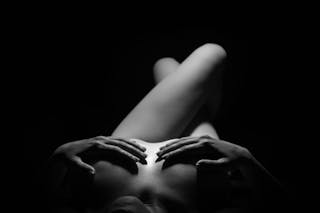The release of Frozen 2 has sparked a lot of speculation and debate among fans about the sexuality of its main character, Elsa. With her powerful ice magic and independent spirit, Elsa has become an icon for many in the LGBTQ+ community, leading to questions about whether she is a lesbian or asexual. In this article, we'll explore these theories and discuss what they mean for the beloved Disney character.
Curiosity is a powerful force, driving us to seek out answers and uncover hidden truths. And when it comes to understanding the characters we love, that curiosity can lead us down unexpected paths. Sometimes, we want to know more about their personal lives and identities. It's like peeling back the layers of a favorite book to reveal the hidden depths within. If you're eager to explore the untold stories of your favorite characters, then you'll want to dive into the world of discovery at Sexy Linx.
Elsa's Journey and Representation
If you're interested in chatting with older men, you should definitely try out this exciting new website for a unique and enjoyable experience.
Since the release of the first Frozen film in 2013, Elsa has been embraced by many as a symbol of empowerment and self-acceptance. Her struggle with her powers and her journey towards self-acceptance has resonated with audiences of all ages, and has been interpreted by some as a metaphor for coming out and embracing one's true identity. This has led to widespread speculation about Elsa's sexuality and what it means for her character.
Explore the thrills of threesome adventures with women and unleash the ultimate trio at Swingfields - it's an experience worth trying out!
The Lesbian Theory
Explore the differences between Her and Tinder and discover which dating app is right for you.
One of the most popular theories about Elsa's sexuality is that she is a lesbian. Many fans have pointed to Elsa's lack of a romantic interest in either of the films as evidence of her potential queerness. In Frozen 2, Elsa's song "Show Yourself" has been interpreted by some as a coming out anthem, with lyrics such as "I'm not a stranger to the dark, Hide away, they say, 'Cause we don't want your broken parts" resonating with LGBTQ+ audiences.
Additionally, Elsa's close bond with her sister, Anna, has been seen as a representation of queer love, with many fans interpreting their relationship as more than just sisterly affection. While Disney has yet to confirm or deny Elsa's sexuality, the lesbian theory has gained traction among many fans who see Elsa as a powerful symbol of LGBTQ+ representation.
The Asexual Theory
Another theory about Elsa's sexuality is that she is asexual. Asexuality is a sexual orientation characterized by a lack of sexual attraction to others, and some fans have seen Elsa's independence and lack of a romantic interest as evidence of her potential asexuality. In Frozen 2, Elsa's journey is focused on discovering the truth about her powers and her place in the world, rather than finding a romantic partner, leading some to speculate that she may be asexual.
The debate over Elsa's sexuality has sparked important conversations about representation and inclusivity in media, with many fans advocating for Disney to confirm Elsa's queerness in future films. Regardless of Elsa's actual sexuality, her character has had a profound impact on many in the LGBTQ+ community, and has become a symbol of empowerment and self-acceptance for people of all sexual orientations.
Impact on Dating and Relationships
The speculation about Elsa's sexuality has also had an impact on how fans view dating and relationships. For many, Elsa's journey towards self-acceptance and empowerment has served as a reminder that it's important to embrace one's true identity and not feel pressured to conform to societal norms. This has led to increased visibility and acceptance of LGBTQ+ individuals in the dating world, as well as a greater understanding of the diverse range of sexual orientations and identities.
Furthermore, the debate over Elsa's sexuality has sparked conversations about the importance of representation in media, and how seeing diverse and authentic portrayals of love and relationships can have a positive impact on individuals' own experiences. Many fans have expressed a desire to see more LGBTQ+ characters in mainstream media, and hope that Disney will continue to embrace diversity and inclusivity in their future films.
In conclusion, the debate over Elsa's sexuality in Frozen 2 has sparked important conversations about representation, inclusivity, and the impact of media on dating and relationships. Whether Elsa is a lesbian, asexual, or any other sexual orientation, her character has had a profound impact on many in the LGBTQ+ community and has served as a symbol of empowerment and self-acceptance. As the conversation continues, it's important to remember the importance of diversity and inclusivity in media, and to advocate for authentic and diverse portrayals of love and relationships for all.
- https://singles-website.campsupernow.com/posts/romance-scams-how-to-spot-dating-fraud-and-report-it/
- https://online-dating.themountaintopplay.com/posts/sex-toy-company-lelo-gives-its-staff-annual-leave-to-masturbate/
- https://free-dating-website.getweps.com/posts/polyamory-and-nonmonogamous-dating-books-to-read-now/
- https://personals-website.getweps.com/posts/frozen-2-is-elsa-a-lesbian-or-asexual/
- https://local-personals.ua-sex.com/posts/
- https://dating-services.themountaintopplay.com/posts/pegging-meaning-and-everything-you-need-to-know-about-pegging-sex/
- https://find-a-girlfriend.thehottieandthenottie.com/posts/sex-quotes-24-funny-and-wise-sex-quotes-to-live-your-life-by/
- https://matchmaker.timebombrecordings.com/posts/how-to-lick-a-girl-out-how-to-eat-a-girl-out-oral-sex-tips/
- https://singles-website.getweps.com/posts/doggy-style-sex-tips-you-need-to-know/
- https://fuck-apps.themountaintopplay.com/posts/how-to-get-a-reply-on-dating-apps/
- https://sex-app.ua-sex.com/posts/
- https://dating-guide.thehottieandthenottie.com/posts/my-best-sex-ever-was-with-his-family-in-the-same-room/
- https://sex-app.thehottieandthenottie.com/posts/vibrators-explained-sex-toy-language-az/
- https://chat.thehottieandthenottie.com/posts/the-25-best-sexy-pyjamas-to-shop-for-valentines-day-2024/
